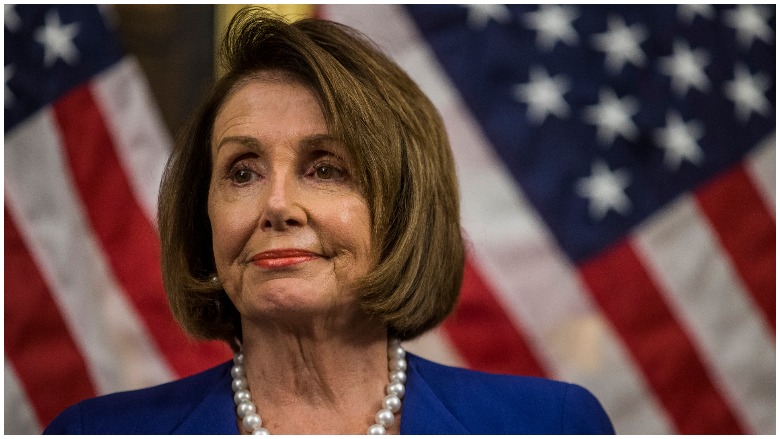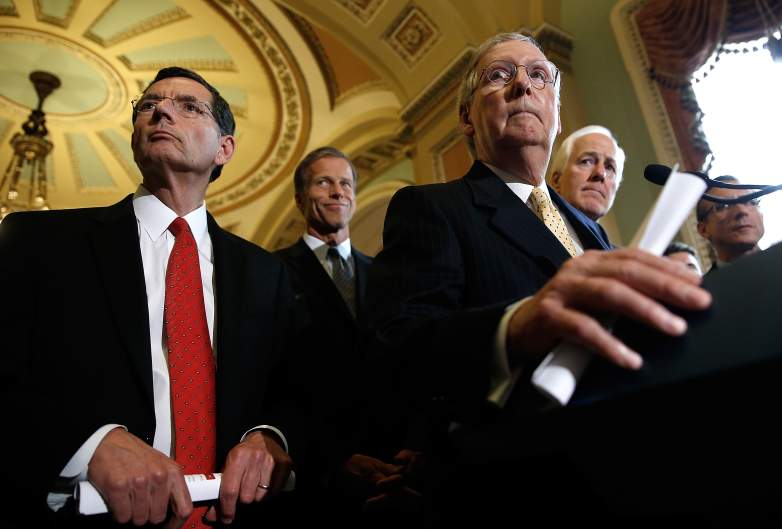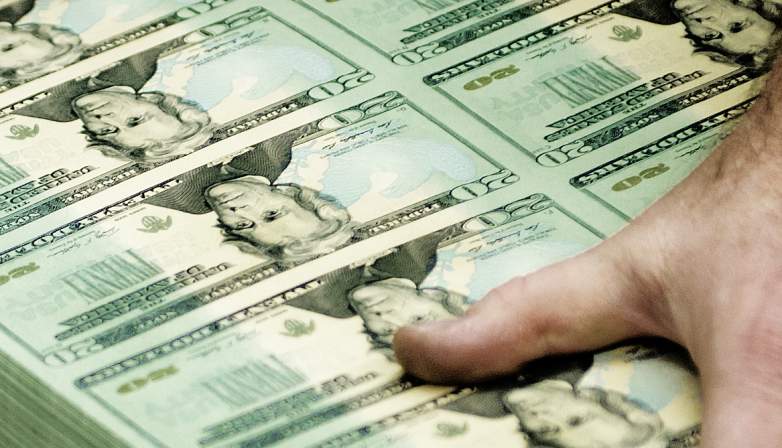
House Speaker Nancy Pelosi says she is “optimistic” that lawmakers will pass another round of coronavirus relief before the upcoming election.
The California Democrat expressed Friday a surprisingly positive take on the possibility of new legislation, despite the fact that the Senate rejected its Republican-proposed “skinny bill” the day prior, according to CNN and Reuters.
“I’m optimistic. I do think that we should have an agreement,” Pelosi told CNN’s Wolf Blitzer during The Situation Room. “That’s what we all want.”
Senate Republicans recently suggested the “skinny” version of their $1 trillion relief package, which sought to provide an additional $300 billion in pandemic assistance, Forbes reported. But Democrats turned it down in search of more funding, the outlet continued.
Pelosi has been a vocal critic against the stripped-down bill, claiming more money is needed for state and local aid, food for children and United States Postal Service funding, PBS previously documented.
During her CNN interview, Pelosi indicated that she was proud of Senate Democratic leader Chuck Schumer for rejecting “that terrible skinny bill to a massive problem that we have”:
I was so proud of him yesterday to reject that terrible skinny bill to a massive problem that we have. Not even trying to find common ground to meet the needs of the American people, in fact, being disdainful and contemptible of the needs of the American people.
Pelosi did not disclose whether there are upcoming negotiations involving the White House or Senate Republicans.
Here’s what you need to know:
Republicans Needed 60 Votes to Pass the ‘Skinny Bill’ but Only Snagged 52

Senate Minority Leader Mitch McConnell (2nd R) answers questions with Republican leaders following the weekly Republican policy luncheon at the U.S. Capitol September 16, 2014, in Washington, D.C.
Senate Republicans recently unveiled their stripped-down version of their relief package, which included $300 per week in federal unemployment through December 27, according to Politico.
It also expanded terms for the Paycheck Protection Program, added $10 billion for the U.S. Postal Service and offered more money for schools and testing, the outlet continued.
The bill needed 60 votes in order to pass, but the final vote resulted in 52 in favor and 47 against, Heavy previously reported — Senator Rand Paul, a Kentucky Republican, was the only GOP “no” vote.
As Congress Remains Deadlocked, Millions of Americans Are at Risk of Losing Their Unemployment Benefits Next Year

Getty
Roughly half of Americans who are currently receiving unemployment benefits are tapping into the Pandemic Unemployment Assistance (PUA), according to a news release from the U.S. Department of Labor.
PUA, created under the spring CARES Act, offers up to 39 weeks of aid for those who would not typically qualify for “regular unemployment compensation,” including freelance, part-time and self-employed workers, the Department previously stated.
Because the program is slated to expire at the end of the year, CNBC reported, aid for millions of “vulnerable” workers could potentially be jeopardized.
Howard University Professor William Spriggs told the outlet that the pandemic assistance offers coverage for groups that are disproportionately affected by the pandemic, “including Black workers who are overrepresented in self-employed, contract or part-time roles.
“The share of workers getting Pandemic Unemployment Assistance clearly points to the gap in the regular state programs that ignore workers and a number of low-wage industries,” Spriggs expressed to CNBC.
“It shows we could and can devise access to programs to insure low-wage workers,” he added.
Unless Congress can agree upon a new stimulus package before the benefits expire on December 31, only workers who would typically qualify for traditional unemployment will “continue to receive aid in the new year,” CNBC indicated.
READ NEXT: COVID-19 Stimulus Check: What’s the October 15 Deadline?